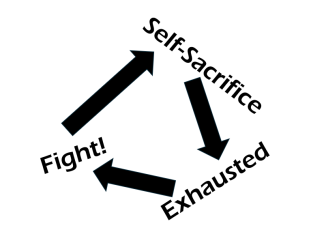Being an optimist might not only help you avoid depression, but it might also help boost your savings account.
There have been many studies that have found links between reduced depressive symptoms in more optimistic people. Conversely, those who see the glass half empty can be more susceptible to the condition.
I guess, if you have a mindset that things are not going to get better it isn’t too much of a stretch to see how this might affect a person’s mental health.
Now, new research out of the USA has found that optimistic people might also do a little better with their finances.
Published by the American Psychological Association the research found people who tended to expect positive outcomes saved more money over time compared with their less optimistic peers.
“We often think of optimism as rose-colored glasses that might lead people to save less for the future, but our research suggests optimism may be an important psychological resource that helps people save, especially when facing economic hardship.” – Lead author Joe Gladstone, PhD, of the University of Colorado Boulder.
Gladstone and his colleague Justin Pomerance, PhD, of the University of New Hampshire, analyzed data from eight large population surveys in the U.S., the U.K., and 14 European countries, with more than 140,000 total participants.
All the surveys included some measure of participants’ optimism, asking participants to rate their agreement with statements such as “I’m always optimistic about my future,” “Overall, I expect more good things to happen to me than bad,” or “In uncertain times, I usually expect the best.”
The surveys also asked participants to report their income, savings, and in some cases total assets.
Across all the surveys, the researchers found that more optimistic participants reported having more savings, on average. While the effect of optimism on saving behavior was strongest for people with lower incomes.
“That makes sense because at higher income levels, people often have more ways to save automatically, such as through mortgage payments (which contribute to home equity) and direct retirement contributions. Or they may simply be able to save because they don’t need to spend all the money they earn.
“For someone living paycheck to paycheck, saving can feel futile,” Gladstone noted.
The research was published in the Journal of Personality and Social Psychology.



